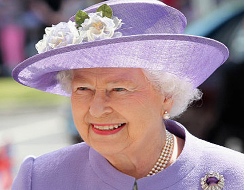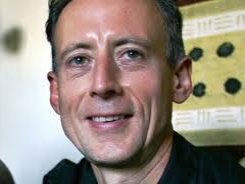BY NATASHA BARSOTTI — Peers in the House of Lords are calling on the British government to put pressure on all Commonwealth countries to decriminalize homosexuality in the wake of criticism over the “vague” language in the anti-discrimination clause of the Commonwealth charter, Pink News reports.
![]()
Homosexuality is a criminal offence in a majority of the more than 50 countries that make up the Commonwealth.
In a March 13 debate on the issue, openly gay Conservative Peer Lord Black of Brentwood opposed laws that discriminated against gays and spoke about a link between the criminalization of homosexuality and the spread of HIV/AIDS.
According to Pink News, Lord Collins of Highbury called the UK a “beacon” for queer rights but observed that domestic progress was not enough and criticized the charter’s “vague terms” of anti-discrimination.
The charter, signed by Queen Elizabeth II earlier in the week, reads in part, “We are implacably opposed to all forms of discrimination, whether rooted in gender, race, colour, creed, political belief or other grounds,” but does not specifically refer to queer people, despite being hailed in some quarters as a progressive step.

Stonewall’s Ben Summerskill was among those praising the Queen for taking “an historic step forward” on gay rights, adding that “the Palace has finally caught up with public opinion.”
Pink News also cites Welsh Conservative MP David Davies as saying he “fails to see why the Queen needs to make a special statement on this country’s opposition to discrimination against gays and women. It is a statement of the blindingly obvious.”
But others, like gay rights activist Peter Tatchell, were not impressed. He says it’s a “bit of a stretch” for entities like Stonewall to suggest that the Queen has “come out as a champion of gay rights and expressed her support for gay equality.
“She’s made no such explicit commitment and not used any such words. Indeed, in her 61 years on the throne, the Queen has never publicly uttered the words lesbian or gay. She is a patron of hundreds of charities but none of them are gay ones,” he says in a statement.

Tatchell continues, “Not surprisingly, the Commonwealth Charter does not include any specific rejection of discrimination based on sexual orientation or gender identity. This was vetoed by the homophobic majority of member states. They blocked its inclusion. This makes the Queen’s charter signing even less of a big deal. It is certainly not the breakthrough for LGBT rights that some people are claiming.”
He says he contacted the Queen’s press office to verify, among other questions, whether she has ever acknowledged the existence of queer people in any of her public statements but has not received a response.
“I rest my case,” he says. “The monarchy is homophobic — if not by conscious intent, then certainly by default. As head of state, the Queen is supposed to represent and embrace all British people, not just some.”
Justice for Gay Africans (JfGA) also criticized the new charter’s lack of teeth on the question of queer rights.
“JfGA views this Charter, in its reliance on ‘other grounds’ to integrate protection against homophobia and gender identity based violence, as extremely limited in its ability to address this clear and contemporary area of concern, which includes extreme discrimination, torture, death, unjust imprisonment, and disregard for individual dignity and human rights,” the group says.
“We are dismayed by media coverage in the UK and elsewhere that suggests that the Charter contains anything realistically useful for [sexual and gender non-conforming] people.”

 Why you can trust Xtra
Why you can trust Xtra


